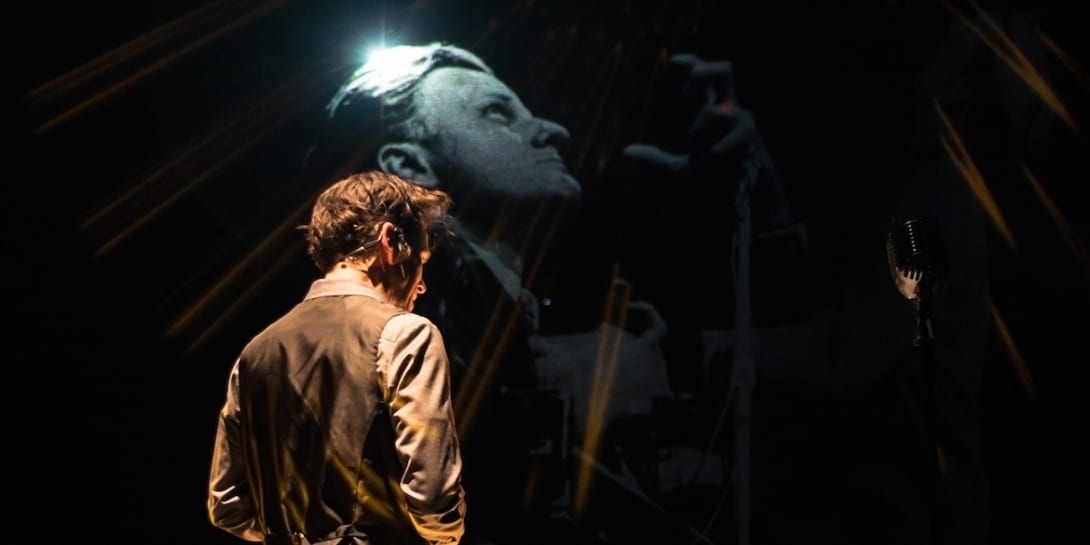There are certain shows which issue a clear generational divide, and what a more apt show to do so, than one which purpose is literally to pontificate on the differences between the generations. Boom is a one man show chronicling the years of the Baby Boomer generation, from 1945 to 1969 through a series of impressions, songs, and clips from famous commercials and speeches. The show opens with the conceit of a family memoir. On the screen we meet our three main story tellers: Maddie, Rick Miller’s mother, Laurence, a Chicago born African American, blowing on his harmonica, and Rudi, a Viennese gentleman with a penchant for doodling. This will be the only time we will see their images, though we learn their voices quickly. Or, at least, the voice Rick Miller decides to give them.
See, this show, in its format and content, seems to fully encompass what my generation is finding so frustrating about modern popular culture: the primary voice being heard is that of a middle aged, cis-gender, white man. It is to the extent, that the stories being told in Boom are those of foreigners or black men or women, and yet this white man is literally giving his voice to their stories. It is an uncomfortable start to the show. This discomfort is magnified through a repetition of impressions of African American leaders which, had they been on point, would have been more acceptable. The lack of accuracy, however, leads to a feeling of caricature and irreverence. Even so, the grain of salt I was trying to give regarding African American content was ground dead after an off the cuff joke which referred to Meghan Markle as “a crazy African American lady”. It seems so unnecessary, just as, to be frank, a lot of the content of the show seems to be. What is the benefit of a live Youtube-style recap of the big hits of these years filled with high school history class information? The lack of connection between Rick Miller and the heartbreaking moments of these years, and a layer of self-congratulation to his own talents that is present, takes away some of the potential poignancy.
The best, and most intriguing, part of the production are the connections between Maddie, Laurence, and Rudi. Because, in fact, they all are connected, in a university in Canada. Hearing how their disparate upbringings merged and diverged again, the heartbreaks they foresaw and followed through with anyway, and the individual hardships they had to overcome are genuinely moving. I wanted to hear more about Maddie, this strong, independent woman who went to college against her parents’ wishes, did LSD, and proudly dated an African American man in defiance of her cop brother. Or hear more about Laurence’s cantankerous, loving, politically minded grandmother and the draft he felt the need to dodge. This is what is potentially unique about this show and could have brought a new perspective on a tired decade, if only they had been mined, instead of snappy musical interludes.
That’s not to say everything is horrible about Rick Miller’s Boom. To note, Miller is an engaging, multi-talented performer and carried an energy laden 2-hour show on his shoulders alone. The content is disagreeable, but the stamina undeniable. Likewise, the pithy video features and choreography of video, sound, and light effects are truly remarkable and add an element of fun to the fast-paced show. Unfortunately, for all the intriguing merging of modern technology and boomer era content, Boom falls flat in terms of taste and purpose.

